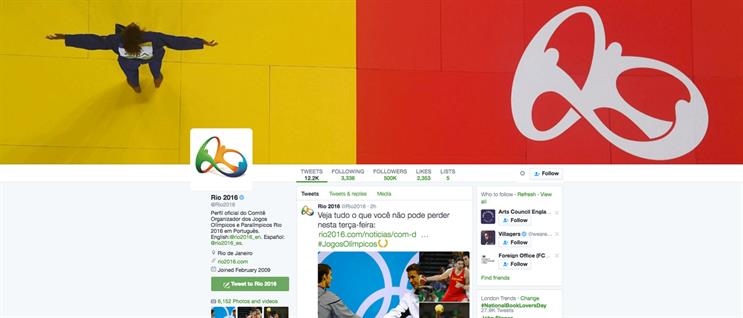A long time ago it was agreed that we would all care about athletics for two weeks (and not a second longer) every four years. And so the modern Olympics was born.
Cut to 2016 and Rio is already the biggest thing on your screen, radio and social feeds, as athletes from around the world compete to outdo each other while we look on.
In a social media landscape where National Sausage Week is (genuinely) considered an opportunity to engage, brands are already competing for our love, Likes and Lols in the never-ending quest for relevance.
The problem with the Olympics, however, is that they will likely be breaking one of the many guidelines set out by the International Olympic Committee (IOC) in its controversial Rule 40 – ranging from basics such as not using official trademarks, to baffling and seemingly un-policeable rules, like referring to "Rio", using #Rio2016, or wishing the athletes good luck.
One person decided to vent their frustrations at the rules by creating a fake "Official Rule 40" Twitter account, calling out brands and celebrities said to be contravening the rules.
While retribution probably won’t take the form of a Twitter bot, brands may want to decide how happy they are to flout the guidelines before attempting to hijack the conversation.
Of course, these extreme rules do make perfect sense for the IOC and the big brands whose money helps to pay for the Games – if it’s free-reign for brands to talk about the Olympics, then why would anyone pay for exclusive sponsorship rights?
Why would anyone care about the official drink, sandwich or shoe if the unofficial ones shouted just as loud? The rules are an attempt to guarantee value.
What do you get for £40m?
Does being an official, exclusive sponsor justify the £10m-£40m outlay?
A study by Greenlight of the 2012 legacy suggests that, in the long-run, people simply don’t remember much of the official brands’ involvement – 49% recall Coca-Cola, while a shocking 0% recall Acer’s involvement. Samsung, which was omnipresent at the London Games, was recalled by just 17%.
Why would anyone care about the official drink, sandwich or shoe if the unofficial ones shouted just as loud? The rules are an attempt to guarantee value.
With ambush marketing at big-ticket events becoming increasingly more memorable than official spots – most famously Oreo’s Super Bowl "dunk in the dark" moment, or Newcastle Brown’s "if we did an ad" parody – you have to wonder if your official sponsorship money could be spent better elsewhere.
The limitations set by the IOC seek to prevent such attempts, and in doing so run counter to all that makes social media wonderful for moments like the Olympics: a shared experience, connecting over common interests, while celebrating and mocking what’s happening on the other side of the world.
The Olympics, which prides itself on bringing people of all backgrounds together (best highlighted in the introduction of a Team Refugee) should be exactly the sort of event to embrace social’s power to democratise and amplify. But, the rules say you can’t join in.
So what’s a brand to do? Break the rules? Bend the rules? Or something completely different?
A quick search of #OpeningCeremony shows many brands not only didn’t think twice about breaking the rules, but also didn’t think about why their brand was talking about The Olympics in the first place. Lazy, unoriginal posts going largely ignored.
Be a rebel: play by the rules
The sweet spot for branded content really sits between the messages you want to broadcast as a brand (whether that’s quality, value or product specifics) and the things you know your customers care about (such as family, memorable experiences, or expressing themselves).
The skill of social creative is to bring those things together in a relevant and interesting way. Laying out a blue, yellow, black, green and red version of your toilet cleaner just doesn’t cut it anymore.
Brands should see the Olympics rules not as restrictions but as an opportunity to talk about what really matters. Instead of putting energy into cleverly bending rules to craft a tangentially themed post, they should spend time learning about what their consumers actually care about and what motivates them to spend with a brand. Finding new and interesting way to tell them something about the product or service, to help change their views and behaviours.
Big events can be amazing moments for brands to lead the cultural conversation, but the self-imposed tyranny of filling a daily content calendar has led to a wallpaper of desperate attempts to meme-ify the world around us for that one click we’re going to claim as engagement.
So, maybe for once it can be cooler to play by the rules. While the whole world is talking about the Olympics, why not give people something else to talk about?
Andrew Blakeley is strategist and head of social at The Corner.


